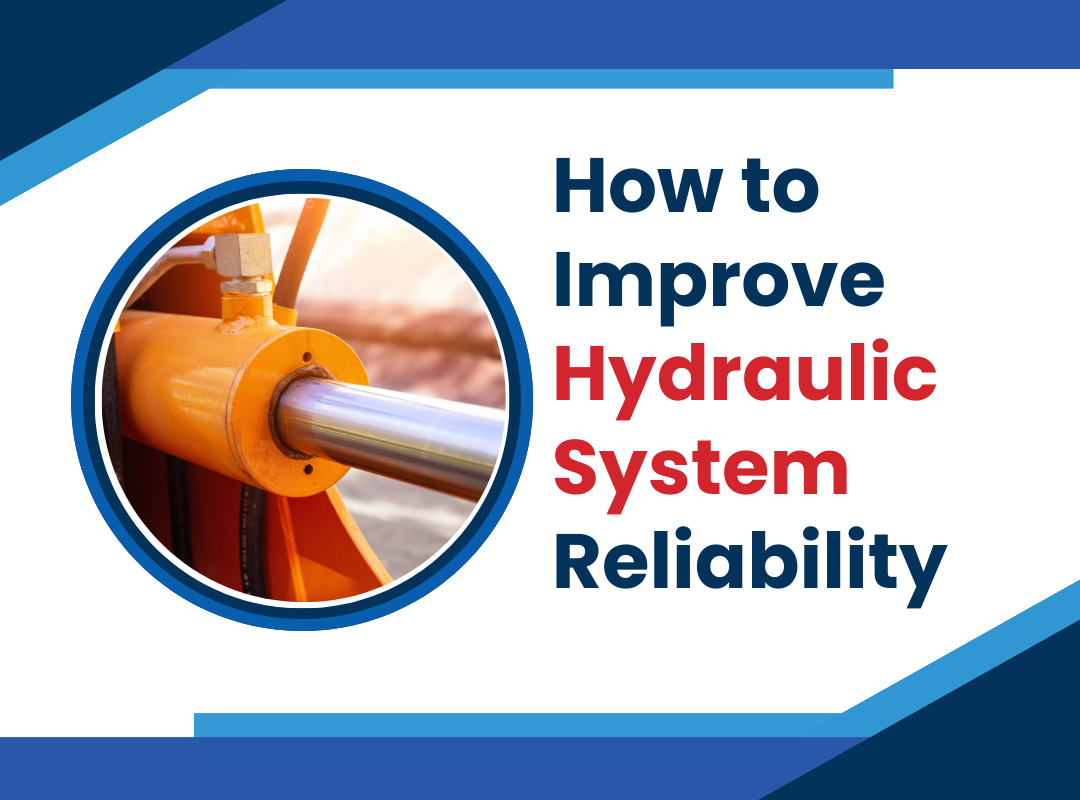Today the industrial world has a variety of applications running on Hydraulic Systems. Be it small or large industries like construction equipment, vehicles, paper mills, logging, or manufacturing robotics, every industry uses the hydraulic system as an efficient and affordable way to improve productivity, and till now, this technology is accurate and hard to top.
Though the purpose of each hydraulic system varies, all of them work through the same basic concept. So it’s absolutely necessary for the hydraulic system to be reliable; otherwise, a simple unscheduled shutdown can result in serious productivity loss.
There are a few things that, when taken care can improve the hydraulic system reliability and reduce the costly downtime.
Use Uncontaminated Fluid
Estimates show that contaminated hydraulic fluid accounts for 75% of all hydraulic failures. Though modern systems are far more sensitive to contamination than older systems, they must use hydraulic oil filtered to 1-micron when placed in a storage tank.
Even brand new hydraulic fluid contains contamination. So all fluid should be filtered thoroughly before entering your hydraulic system.
Experts recommend using a unit that can flush and filter hydraulic fluid so that the filter can remove contaminated particulates and water. Though these types are a bit expensive, it is worth the investment.
Hydraulic Systems Must be kept in Dry Conditions
Moisture can damage the hydraulic equipment with oxidation and corrosion and affect your equipment’s efficiency. The common source of moisture for hydraulic systems used in manufacturing plants is the humidity from ambient air, particularly the air during hot summer months.
When mixed with hydraulic fluid, this air tends to affect the efficiency of the fluid. This is why it is recommended to take care of the health of the hydraulic system.
Maintaining the Temperature of the Hydraulic System
Hydraulic systems can handle any extreme temperature. Aforementioned, the most common cause of hydraulic failure is fluid contamination, and the reason that makes it fail is the heat generated by the particulates present in the fluid.
If the temperature rises above 140 degrees F, the hydraulic fluid lifespan is affected, and in turn, it causes more frequent breakdowns and expensive downtime.
Also, when the temperature increases, the hydraulic fluid loses its capacity to lubricate the components, and this results in their wear and tear. So a small mistake(of using contaminated fluid) can lead to catastrophic failure of the system.
Preventive Maintenance Tips to Improve the Reliability of the Hydraulic System
The popular quote points out that prevention is better than cure; you can follow some preventative maintenance to improve the hydraulic system reliability.
Some components that require scheduled maintenance are
Reservoir
The Electric hydraulic pump need not be replaced unless it is severely degraded. However, the Hydraulic system reservoir that holds the hydraulic fluid needs periodic cleaning. Once the cleaning is done, you can pass the fluid through a 1-micron filter before refilling the reservoir.
Oil Level Switches
If you like to minimize the oil loss when the hose ruptures, then look for a warning that the reservoir show. Reservoirs have two levels before the shutdown, a warning level, and an actual shutdown level. If something goes wrong, go straight to shutdown mode and reduce the loss of hydraulic fluid.
Breather Cap
These components also contribute to keeping the hydraulic system free from contaminants. Breather caps must have a 10-micron rating and be changed twice a year or when its mechanical indicator indicates that the filter is dirty.
Maintaining a high-temperature switch, cleaning and flushing the hydraulic system, and checking the hoses and pumps for any signs of wear or abrasive damage are other preventive measures that must be taken to improve the reliability of the hydraulic system.
Do Regular Testing On Your Hydraulic System
Testing your hydraulic systems to ensure the perfect working of the system also improves the reliability signs. Proper testing can help detect potential issues earlier and also address them before they end up in abrupt failure.
So it is essential to test the pumps, accumulators, and valves of your hydraulic system and ensure perfect working.
Final words
To improve the reliability of the Hydraulic tools, it is essential to follow the tips for preventive measures and also perform certain tests. By doing these, you can ensure the proper working of the hydraulic system and avoid sudden catastrophic failures.


